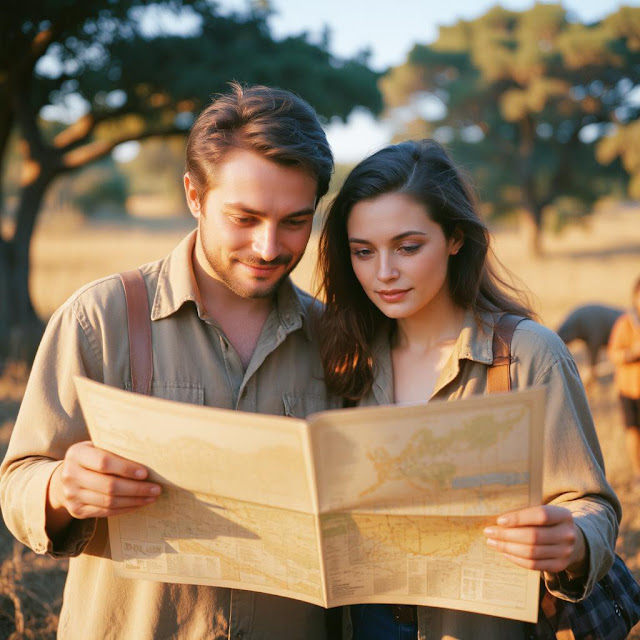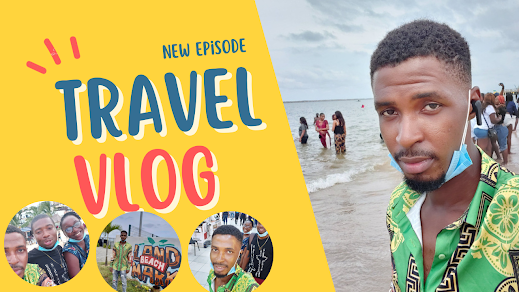Sober Adventures: Traveling the World Without the Booze
INTRO:
It was planned that Alison Sinclair's trip to Turks and Caicos would be a memorable one, complete with pristine beaches, beautiful waters, and the kind of enjoyable experiences you'll always treasure. Her trip to the island with her best buddy, however, ended up taking an unexpected turn. She discovered that she was drowning in cocktails at the bar every day rather than enjoying the sun and swimming in the beautiful sea. She became estranged from her companion as a result of her alcohol-fueled antics, and she also has fuzzy, jumbled memories of the trip. In her reflections on her sobriety and her friend's reconciliation journey eleven years later, Sinclair made a solid commitment to herself: the next time she travels the world, she will. she'll do it with a clear head and a heart full of experiences.
Outlines:
- The Sober Travel Revolution: Sipping on Life, Not Alcohol
- Sobriety on the Move: The Rise of "Sober Travel"
- Meeting the Thirst for Sober Travel: Tailoring Trips to the Unconventional
- Cheers to a Dry January...and Beyond
- Sober Travel: Not Just a Trend, but a Way of Life
The Sober Travel Revolution: Sipping on Life, Not Alcohol:
While Alison Sinclair's decision to give up drinking was deeply personal, she is just one of the many intrepid travelers who have begun challenging the status quo of alcohol-soaked adventures. They've been asking major tourism companies to create experiences that cater to a sober clientele. The good news is that their voices have been heard. From hospitality giants like Hyatt Hotels to cruise line titans like Norwegian Cruise Line, major travel brands are not only offering alcohol-free itineraries but actively promoting them. Intriguingly, while there have always been travelers who abstain from alcohol for various reasons, such as religious beliefs or health concerns, the burgeoning "sober curious" movement has seamlessly integrated with the world of tourism. This phenomenon aligns perfectly with the broader wellness trend that has been sweeping across the globe. According to the World Health Organization, a staggering three million deaths annually are attributed to alcohol consumption. The most alarming statistic emerges among those aged 20-39, where a whopping 13.5% of global deaths are somehow connected to alcohol.
Sobriety on the Move: The Rise of "Sober Travel":
We Love Lucid, a UK-based company specializing in sober travel, serves as an exemplar for this new generation of travelers who crave sober adventures without affiliating themselves with any specific recovery program. Lauren Burnison, the founder of We Love Lucid, deliberately avoids terms like 'addiction' and 'recovery' in her marketing because she believes there exists a vast middle ground. Many participants who embark on We Love Lucid trips don't consider themselves alcoholics or adherents of recovery programs. They've simply chosen not to drink for a myriad of reasons. Much like Alison Sinclair, Burnison discovered that quitting alcohol substantially boosted her disposable income and opened up a world of possibilities. Her revelation occurred while exploring the Spanish town of Ronda, nestled about 65 miles east of Malaga. It was during this time that she conceived the idea of sharing the joy of sober travel with others. Today, We Love Lucid curates group trips to lesser-known destinations like Ronda, where days are filled with enchanting sightseeing, thrilling kayaking adventures, and delightful tapas-making classes. Burnison encapsulates the essence of these journeys by saying, "The whole thing behind going away on an alcohol-free trip with a bunch of other people who don't drink...it's about connection. It's about connecting with other people who have had similar life experiences as you. Travelers bond quickly and deeply because there's that shared vulnerability." The term "sober curious," coined by British author Ruby Warrington in her 2018 book of the same name, represents a new breed of individuals who don't necessarily adhere to any specific faith or doctrine but are exploring a lifestyle that involves consuming less alcohol rather than abstaining entirely. However, Lauren Burnison draws a clear distinction between being sober curious and being genuinely sober. Socializing without alcohol can be challenging, especially for those new to recovery, and it eliminates the temptation of witnessing others indulge. Even colossal alcohol brands like Asahi and ImBev are recognizing this shift and marketing their low- and zero-alcohol beverages. Jen Batchelor, the CEO of Kin Euphorics, a nonalcoholic beverage brand, confirms the validity of "sober curiosity." She remarks that for a long time, the evening's options seemed limited to either going out drinking or staying home with nothing to do. Now, across the United States, sober bars are cropping up to cater to this new audience, offering enticing and colorful drinks alongside opportunities to socialize. Travel companies have also entered the arena, ready to support these consumers when they venture beyond the safety of their local communities.
Meeting the Thirst for Sober Travel: Tailoring Trips to the Unconventional:
In some cases, the inspiration to create sober travel experiences didn't stem from customer feedback but rather from the experiences of staff members. Deon de Villiers, owner of the custom travel agency Safari Guru, recalls how one of his staff members entered a health facility to treat their drinking issue, which had been made worse by the pandemic's difficulties. This employee's journey prompted De Villiers to contemplate how a sober person might navigate a safari, a quintessentially boozy experience with every safari lodge flaunting its well-stocked bar. Each of the safari accommodation has a bar, and it is there just in front of you, the speaker says. Therefore, we attempt to get rid of that element from the camp and replace it with other colorful drinks and items while educating the staff on how to make lovely non-alcoholic cocktails. Safari Guru, already known for its highly customized trips, seamlessly transitioned into offering sober safaris. De Villiers insists that while removing alcohol is a crucial aspect, it's only part of the equation. "That's why we like the group approach. So you're with like-minded individuals. A lot of these people, they need support as well. The individuals that we actively engage with want to interact with other people who are sober themselves." To come full circle, the sober safari trips are now led by the same employee who initially suggested the program.
Cheers to a Dry January...and Beyond:
The concept of Dry January was introduced by nonprofit organization Alcohol Change UK in 2013. It's a simple yet effective idea: after a month of indulgence in December's holiday feasts, people can kickstart the New Year by abstaining from alcohol, detoxing their bodies, and focusing on their health. According to data from CGA, a company specializing in food and drink trends research, a staggering 35% of legal drinking age Americans opted to participate in Dry January 2022. This initiative offers both brands and consumers the chance to dip their toes into the world of a no-drinking lifestyle without committing fully. Hyatt Hotels, for instance, initially dabbled in the idea of mocktail menus for Dry January at select properties in the United States. When this experiment proved successful, Hyatt embraced the movement wholeheartedly, introducing the "Zero Proof Zero Judgment" program across the nation. Miranda Breedlove, Hyatt's national director of bars and lifestyle operations, emphasizes their commitment to providing options for a mindful relationship with alcohol, stating, "We want to ensure there's no judgment – a guest may not be drinking alcohol for many reasons."
Sober Travel: Not Just a Trend, but a Way of Life:
For Alison Sinclair, sober travel is not just a passing trend; it's a way of life. Since embarking on her journey to sobriety, she has ventured to far-flung countries like Burundi, Papua New Guinea, and Yemen. Remarkably, she has attended Alcoholics Anonymous meetings in nearly all of them, a testament to the strength of her commitment and the resilience of the human spirit. As the world of travel continues to evolve, it's heartwarming to see the rise of sober adventures, catering to a diverse range of individuals who seek connections, meaningful experiences, and a chance to savor life without the haze of alcohol. So, whether you're sober curious, fully committed to sobriety, or simply looking for an alternative way to travel, the world has increasingly become your oyster – and there's a refreshing non-alcoholic drink waiting for you at every turn. Cheers to that!








cool
ReplyDelete